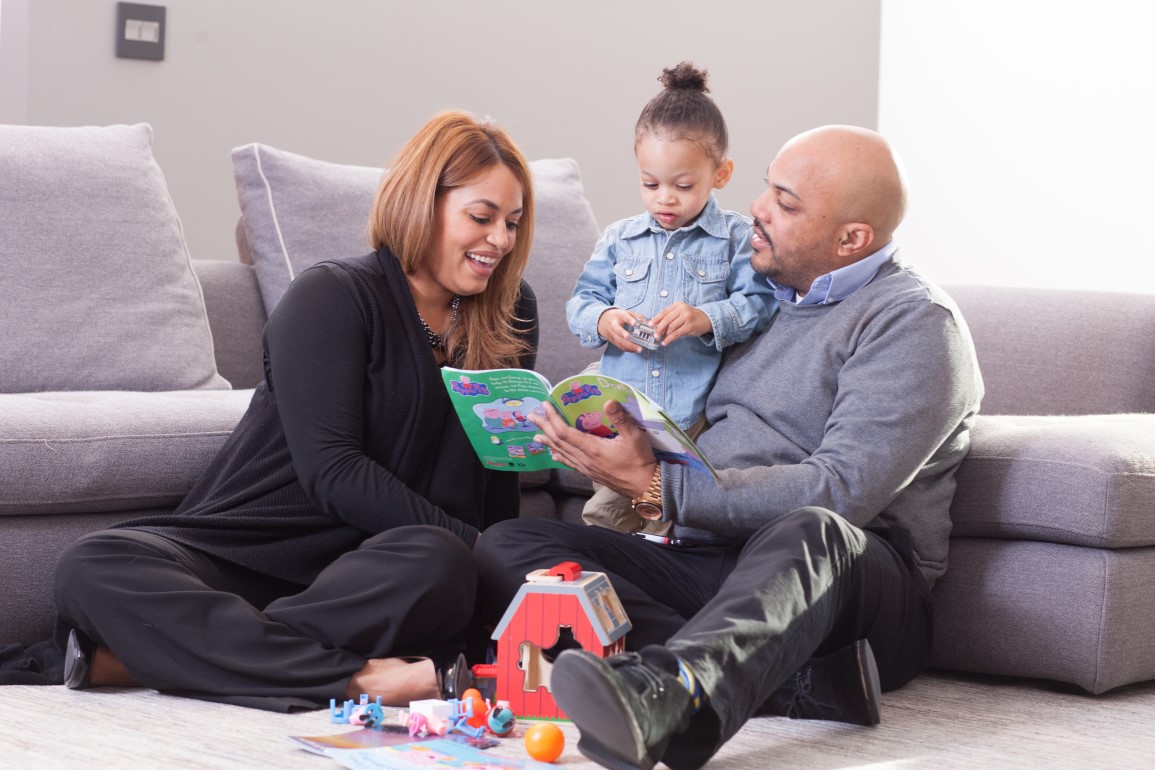As Linda Mason, co-founder of Bright Horizons and author of The Working Mother's Guide to Life: Strategies, Secrets and Solutions suggests, the commute home can be a time when you purposely move out of your rushing mode and allow yourself and your child to slow down a little.
Here are some tips for traveling and commuting with kids. These suggestions will help make your time on the road more relaxed and enjoyable for everyone.
Tips for Traveling with Children
1. Communicate. A trip home is a good time to talk about your child's day. Before you leave the daycare center or preschool, look at the daily plans and try to ask your child's teacher for a highlight or two of the day. You can initiate the conversation, as children will often not volunteer this information. Although communication with children can be tough, especially with nonverbal children, it is good and useful to say, "I heard you played with water today."
2. Plan Ahead. Talk about what you will do when you get home so your child can visualize the next step.
3. Keep it Fresh. Take turns making the commute with your spouse or partner. It is helpful for each of you to have this time with your child, to get to know the child care situation, and to give each other a break.
4. Pack Snacks. Hungry children (and adults) make lousy traveling companions. Keep a few nonperishable items in your car for snacks so that you don't have to remember to pack snacks each day.
5. Be honest. If your child becomes upset during the commute, it usually doesn't make sense to stop. Talk reassuringly to your child and let him or her know approximately when he or she will arrive home. Make your terms as concrete as possible: "We have to pass the water tower and the mall and then we will be at home. I will take you out of your car seat as soon as we get there."
Car Entertainment for Kids
Music. Music is obviously great for the long car ride. Choose some CD’s, audio books, family-friendly podcasts, or, your favorite streaming service that you will both enjoy and won't get tired of.
Carpool Karaoke. Singing in the car can be fun and a great shared language experience. You don't have to sing well, just have fun doing it. Made-up, silly songs are often favorites of children.
Audiobooks. Audio files of books, stories and poetry are available on Amazon, YouTube, and your local public library. They don't replace great conversation, but are a great change of pace. You can also record your own audiobook.
The Repeat Button. Expect that repetition will be important to your child. He or she will probably want to hear favorite songs and stories more often than you want to hear them.
Games to Play in the Car
- Play with geography and landmarks. "I see the bridge. That means we are almost at preschool!"
- Play the spotting game. You can look for certain things like letters, colors, or objects (taxi cabs, trucks, exit signs etc.).
- On the trip to child care or preschool, ask children to predict who will be there and what will happen.
What to Pack in Your Car Ride Survival Kit
If you commute with your child by train, bus, or longer car rides, create a small travel bag. Make the contents of the bag special by reserving their use exclusively for the long commute. Your travel bag should consist of:
- Books
- Small one-piece toys
- Teething toys for infants
- No-mess art activities—for example, "Etch-a-Sketch" makes a small travel-size version of their toy
- A colorful clipboard with paper and a chunky pencil attached for older preschoolers
- An activity kit: create one by punching holes across the bottom of several heavy-duty, sealable plastic bags and putting them in a three-ring binder. Fill each bag page with non-messy art supplies or toys.
Driving with your children doesn’t have to be an unpleasant experience. Be prepared, plan ahead, and try to incorporate some fun and learning into the trip—it will be a bonding experience that’s more enjoyable for everyone.
- Get tips for keeping your car clean when you commute with kids.
- Bright Horizons Radio on Pandora® makes it easy to put music into your child’s world. Our station gives you access to family-friendly music from today’s popular artists that you can feel great about…and that everyone will enjoy.
- For working parents, here are some tips for transitioning from work to home life from a mom who commutes with her son.
- Find parenting advice on how to keep kids entertained in long car rides as well as tips on good music for kids.





